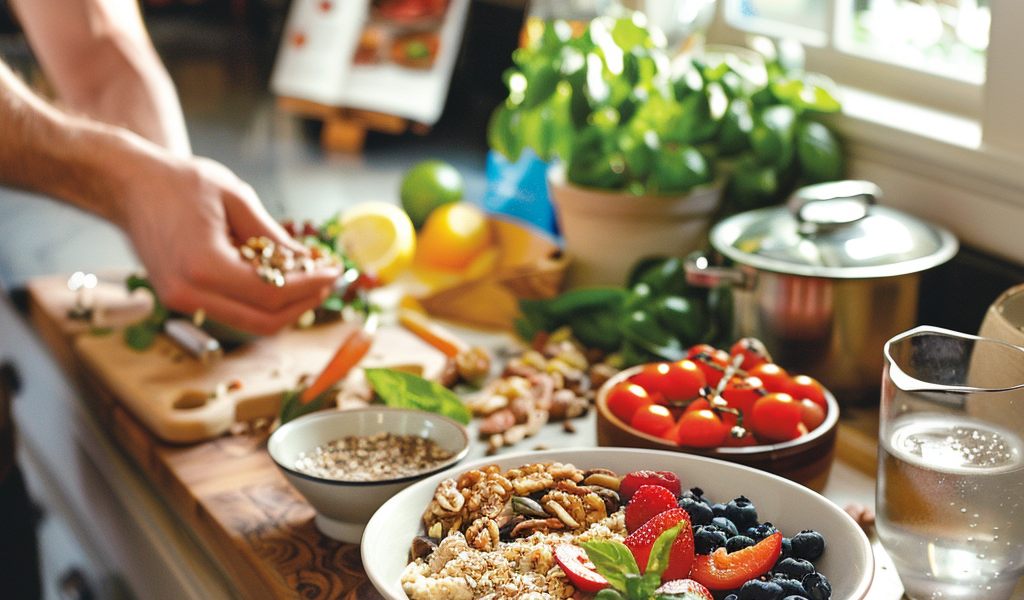As the countdown to marathon day begins, many runners find themselves navigating the complexities of pre-race nutrition. For those preparing for their first marathon, understanding how to fuel the body effectively can make a significant difference in performance. This guide outlines essential strategies for carbohydrate loading, meal planning, and nutritional choices leading up to the big race.
Carbohydrate loading is a critical component for marathon runners, aimed at maximizing glycogen stores in the muscles. The week leading up to the marathon typically involves tapering mileage while increasing carbohydrate intake. This strategy helps ensure that the body has ample energy reserves for the long-distance run ahead.
To optimize performance, it is vital to consume a balanced diet rich in carbohydrates, with recommendations suggesting an intake of approximately 8-12 grams of carbohydrates per kilogram of body weight. For example, a runner weighing 63 kilograms (about 139 pounds) should target around 508 grams of carbohydrates daily. This intake can be divided into three main meals and several snacks throughout the day to maintain energy levels.
While it may be tempting to indulge in sugary treats during the carbo-loading phase, it is essential to focus on quality carbohydrates. Simple carbohydrates, such as white rice, white bread, and pasta, can be easier to digest and provide quick energy. However, it’s also important to pair these carbohydrates with lean proteins to support muscle recovery and overall performance.
For breakfast, a nutritious option could be peanut butter oatmeal. This meal combines one cup of oatmeal, which provides about 103 grams of carbohydrates and 26 grams of protein, with a scoop of peanut butter for an additional 8 grams of protein and a serving of berries for extra carbohydrates and antioxidants. This combination ensures a balanced intake of energy and nutrients to fuel training sessions.
When preparing meals, consider dishes that incorporate both carbohydrates and proteins. For instance, a meal of salmon with pasta in a butter-tomato sauce can provide a hearty serving of protein and carbohydrates. However, it is crucial to choose the right type of pasta; regular pasta made from refined flour may be more suitable in the days leading up to the marathon, as it is easier to digest compared to whole-wheat pasta, which is higher in fiber.
In addition to focusing on carbohydrate and protein intake, hydration plays a vital role in preparing for a marathon. Staying properly hydrated helps maintain optimal performance levels and can prevent fatigue during the race. Runners should aim to drink plenty of water throughout the week before the marathon, adjusting fluid intake based on individual needs and environmental conditions.
As race day approaches, it is also advisable to reduce fiber and fat intake significantly. High-fiber foods can lead to gastrointestinal discomfort during the race, while fatty foods may slow digestion. It’s best to avoid spicy or rich foods that could upset the stomach. Instead, stick to easily digestible meals that provide the necessary energy without causing distress.
On the eve of the marathon, a common practice is to have a carbohydrate-rich dinner, such as pasta with a light sauce. This meal should be familiar and easy to digest, allowing the body to absorb the carbohydrates effectively. Additionally, runners may choose to consume a small snack before bed, such as a banana or a slice of toast with honey, to top off glycogen stores.
Finally, it is essential to listen to your body during this preparation phase. Each runner’s nutritional needs may vary, and what works for one individual may not work for another. Consulting with a sports dietitian can provide personalized guidance tailored to specific goals and dietary preferences.
In summary, preparing for a marathon involves strategic planning around nutrition and hydration. By focusing on carbohydrate loading, choosing the right foods, and maintaining hydration, runners can set themselves up for a successful race experience. Emphasizing quality over quantity in food choices, and making adjustments based on individual responses, will help ensure that athletes are ready to tackle the marathon distance with confidence.





